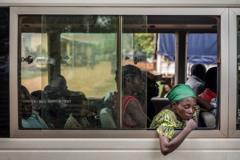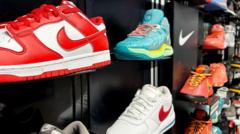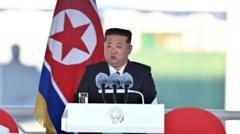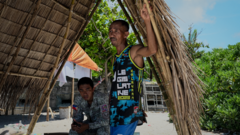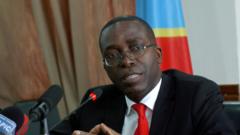Tadashi Yanai, CEO of Uniqlo's parent company Fast Retailing, has publicly clarified that the brand does not source cotton from Xinjiang. Speaking to the BBC, he stressed the firm’s commitment to transparency in sourcing while navigating complex geopolitical dynamics between the US and China. As Uniqlo aims for significant expansion in China, Yanai is cautious about entering political discussions, underscoring the retail giant's focus on essential fashion that prioritizes sustainability.
Uniqlo's CEO Affirms Absence of Xinjiang Cotton in Products, Charts Future Growth
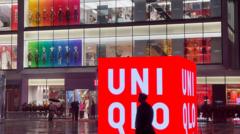
Uniqlo's CEO Affirms Absence of Xinjiang Cotton in Products, Charts Future Growth
Uniqlo's chief executive emphasizes ethical sourcing and plans for global expansion amid geopolitical pressures.
In an interview with the BBC, Tadashi Yanai, the chief executive of Uniqlo's parent company Fast Retailing, confirmed that the global fashion brand does not utilize cotton from Xinjiang, China, in its products. This statement is significant as it marks Yanai's first clear public position regarding the controversial sourcing issue, amid rising global scrutiny surrounding forced labor practices affecting the Uyghur Muslim minority in the region.
While China remains an essential market for Uniqlo, houses over 1,000 stores, and serves as a primary manufacturing hub, Yanai's previous hesitations to take a stance on Xinjiang cotton had protected the brand from backlash experienced by other retailers like H&M, which faced boycotts after revealing their reliance on the disputed cotton. However, the CEO now emphasizes a policy of transparency, illustrating a cautious yet definitive pivot in the company's approach to supply chain ethics.
The discussion around Xinjiang cotton is further complicated by the tensions between the US and China, forcing companies to navigate a minefield of expectations from both governments. Commenting on the challenges faced by international retailers, Isaac Stone Fish, head of Strategy Risks, reiterated that neutrality is no longer an option for major brands.
Although Uniqlo is scaling operations in Europe and the US, Yanai maintains that the Asian market holds vast potential for growth, with plans to triple its store count in China to meet evolving consumer demands. The firm is also adapting to the competitive landscape of fast fashion, asserting a commitment to sustainability over transient trends that contribute to waste. Yanai aspires to challenge industry giants like Inditex, owner of Zara, while also preparing for potential political obstacles, such as rising tariffs on Chinese imports should former President Donald Trump return to office.
As fashion companies continue to face heightened consumer awareness of ethical sourcing and human rights, Uniqlo's strategic choices may shape its future in an increasingly complex global market.
While China remains an essential market for Uniqlo, houses over 1,000 stores, and serves as a primary manufacturing hub, Yanai's previous hesitations to take a stance on Xinjiang cotton had protected the brand from backlash experienced by other retailers like H&M, which faced boycotts after revealing their reliance on the disputed cotton. However, the CEO now emphasizes a policy of transparency, illustrating a cautious yet definitive pivot in the company's approach to supply chain ethics.
The discussion around Xinjiang cotton is further complicated by the tensions between the US and China, forcing companies to navigate a minefield of expectations from both governments. Commenting on the challenges faced by international retailers, Isaac Stone Fish, head of Strategy Risks, reiterated that neutrality is no longer an option for major brands.
Although Uniqlo is scaling operations in Europe and the US, Yanai maintains that the Asian market holds vast potential for growth, with plans to triple its store count in China to meet evolving consumer demands. The firm is also adapting to the competitive landscape of fast fashion, asserting a commitment to sustainability over transient trends that contribute to waste. Yanai aspires to challenge industry giants like Inditex, owner of Zara, while also preparing for potential political obstacles, such as rising tariffs on Chinese imports should former President Donald Trump return to office.
As fashion companies continue to face heightened consumer awareness of ethical sourcing and human rights, Uniqlo's strategic choices may shape its future in an increasingly complex global market.


